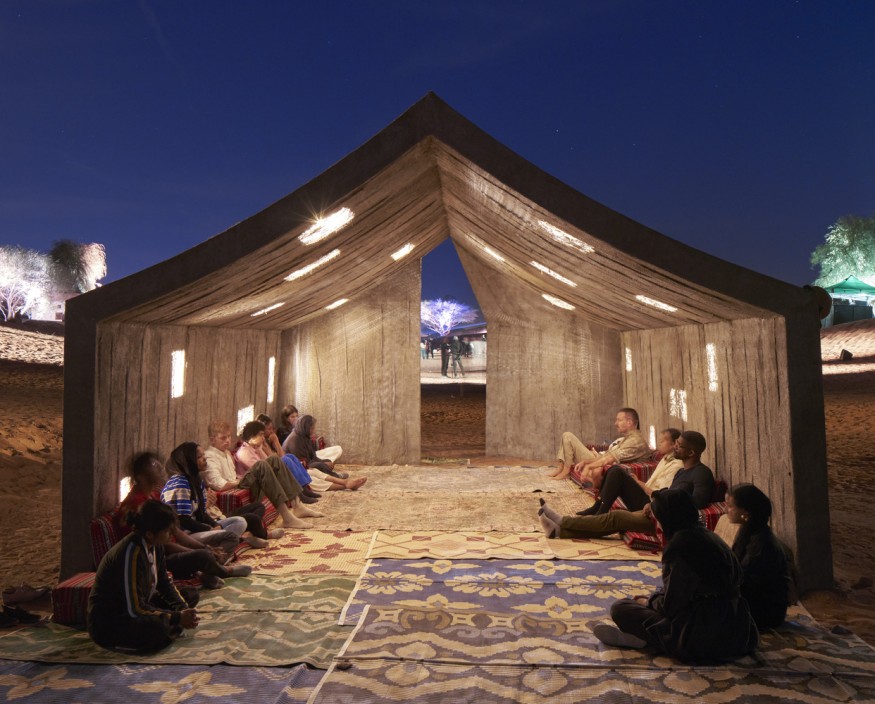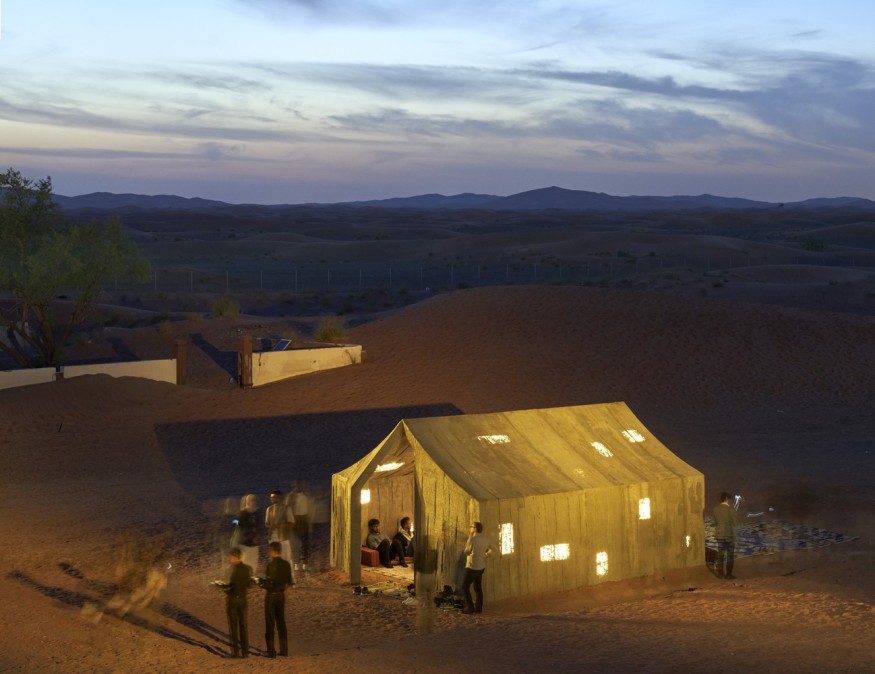DAAR's Concrete Tent in Sharjah Desert Shows the Idea of “Permanent Temporariness”

The "Concrete Tent" and the Concept of "Permanent Temporariness"
The Sharjah Architecture Triennial 2023 kicked off on November 11th, embracing the theme of "The Beauty of Impermanence: An Architecture of Adaptability." At the heart of the deserted 1970s Al Madam in the Sharjah desert lies the enigmatic "Concrete Tent," a creation by DAAR, an experimental Palestinian and Swedish studio. Blending elements of a mobile tent and a concrete house, this structure delves into the intriguing concept of "permanent temporariness."
The essence of "permanent temporariness" reflects a displacement caused by environmental, political, and economic shifts, hindering people from fully experiencing the present. According to DAAR's philosophy, many individuals are suspended and fixated on an idealized past or a nostalgic present. In response, the "Concrete Tent" emerges as an experimental reimagination, preserving space while redefining temporal built environments.
Curiously situated in the Al Madam Ghost Town, initially intended for settling and modernizing a nomadic people in the 1970s, the "Concrete Tent" stands in contrast to its surroundings. This initiative, designed for those who oppose creating a new nation-state, now witnesses abandoned buildings reclaimed by the desert sands.
DAAR's concrete tent in Al Madam Ghost Town is an experimental preservation project, enveloping modernist buildings with yuta fabric, a traditional tent material. The goal here is not permanence but repurposing the area as a symbol of the legacy of "permanent temporariness." Paired with the remnants of modernist ruins, the yuta fabric mirrors the constant impermanence experienced by modern migrant communities, evoking memories of wandering lives. As the structure is destined to collapse under the advancing dunes, it symbolizes the inherent beauty in fleeting things.

The Sharjah Architecture Triennial Unveiled
During the initial days of the Sharjah Architecture Triennial, the Concrete Tent became a space for communal grief, responding to the ongoing crisis in Palestine. Originally from the Dheisheh Refugee Camp in Bethlehem, Palestine, the tent, acquired in 2015, aims to encapsulate the world's sorrow for Palestine. At the triennial's inauguration, DAAR founders Sandi and Alessandro led the Concrete Tent as a space for communal mourning, emphasizing the emotional depth intertwined with the structure's symbolic significance.
Curated by Tosin Oshinowo, the Sharjah Architecture Triennial spotlights the Beauty of Impermanence, focusing on the global south. Seeking an optimistic approach, the event unravels alternative responses from the global south, showcasing projects that challenge conventional perspectives. Among these is the "Tashkent: Appropriating Modernism" display by architecture studio Waiwai. Offering a nuanced analysis of buildings, this exhibit initiates a narrative on the interplay between modernism and Uzbekistan's architectural heritage.
Another noteworthy addition to the triennial is the "3-Minute Corridor" pavilion by WallMakers, which explores global waste on a massive scale. This pavilion delves into methodologies of material reuse, drawing attention to the impact of waste on our environment and the potential for sustainable alternatives.
In conclusion, DAAR's "Concrete Tent" at the Sharjah Architecture Triennial 2023 profoundly explores "permanent temporariness." With its amalgamation of traditional and modern elements, the tent serves as both a symbol of communal grief and a testament to the impermanence inherent in our ever-changing world. As the triennial unfolds, it becomes a platform for diverse narratives, shedding light on the intricate relationship between architecture, impermanence, and adaptability.










